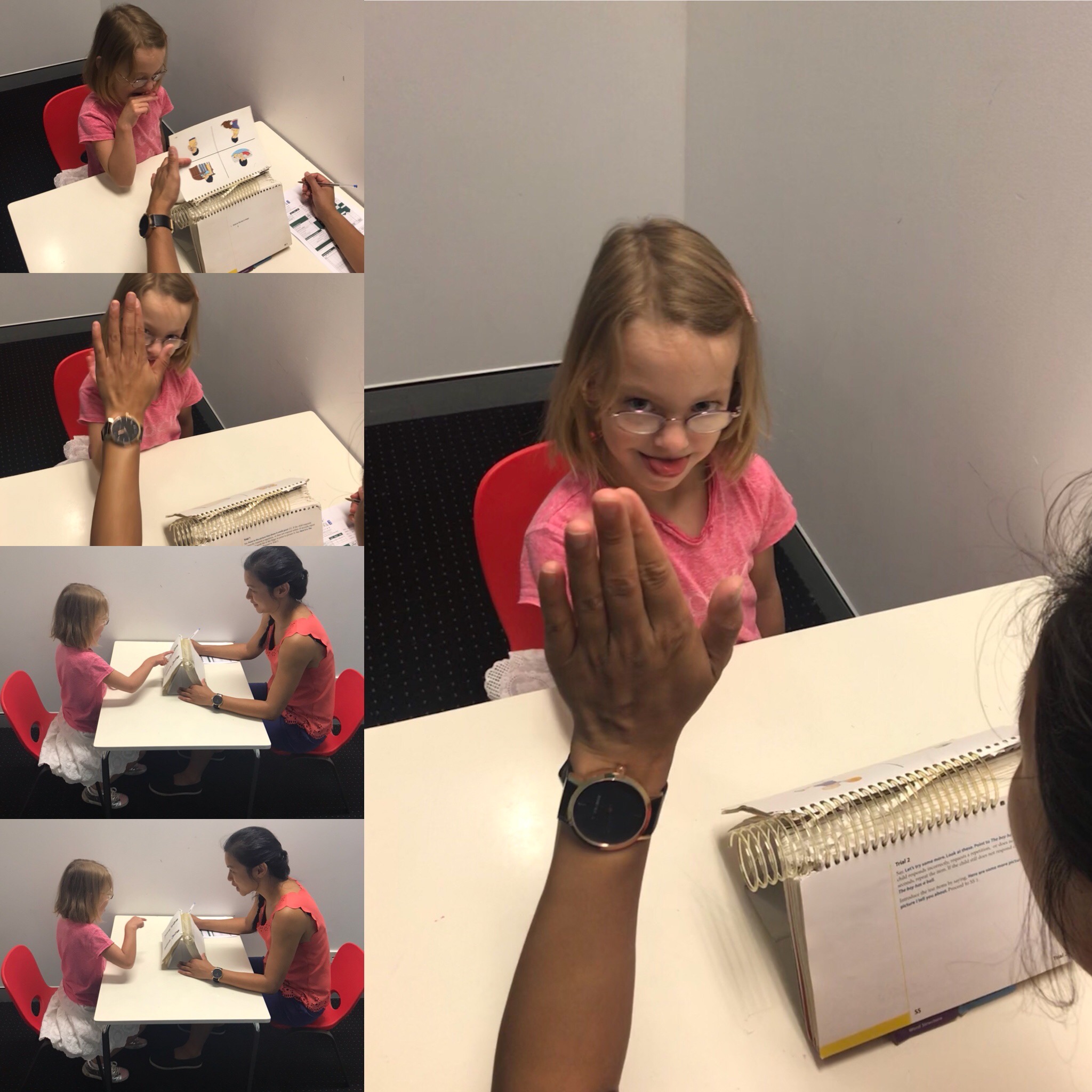
Receptive communication is the ability to understand and process the language we hear or read. This skill is crucial for effective communication and interaction with others. It involves understanding words, sentences, and meaning in context. When children or adults have difficulties with receptive communication, it can impact their ability to follow directions, understand questions, and engage in conversations. Speech pathologists play a vital role in helping individuals improve their receptive communication skills.
What is Receptive Communication?
Receptive communication refers to how well a person can understand language. This includes:
- Understanding Words and Sentences: Knowing the meaning of words and how they are put together to form sentences.
- Following Directions: Being able to understand and carry out instructions, whether they are simple or complex.
- Comprehending Questions: Understanding questions and knowing how to respond appropriately.
- Grasping Concepts and Ideas: Understanding broader concepts and ideas conveyed through language.
For children, developing receptive communication skills is essential for learning, social interaction, and everyday functioning.
Signs of Receptive Communication Difficulties
- Not Responding to Their Name: Children might not seem to notice or respond when their name is called.
- Difficulty Following Directions: Struggling to follow simple or multi-step instructions.
- Limited Understanding of Questions: Having trouble understanding and answering questions.
- Challenges with Learning New Words: Difficulty learning and retaining new vocabulary.
- Poor Attention to Spoken Language: Not paying attention when someone is speaking or seeming confused during conversations.
- Difficulty with Stories and Conversations: Finding it hard to follow along with stories or conversations.
How Speech Pathologists Help with Receptive Communication
Speech pathologists, also known as speech therapists, are trained professionals who help individuals with speech and language difficulties. They use various techniques and activities to improve receptive communication skills.
Assessment and Diagnosis
Initial Evaluation: Speech pathologists start by assessing the individual’s receptive communication skills. They may use standardised tests, observations, and parent/teacher reports to understand the person’s abilities and challenges.
Identifying Specific Needs: Based on the assessment, the speech pathologist identifies specific areas that need improvement, such as understanding vocabulary, following directions, or comprehending questions.
Developing a Personalised Plan
Customised Therapy Plan: The speech pathologist creates a personalised therapy plan tailored to the individual’s needs. This plan includes specific goals and activities designed to improve receptive communication skills.
Family Involvement: Involving family members in the therapy process is crucial. Speech pathologists provide guidance and resources to help families support the individual at home.
Therapeutic Techniques and Activities
Visual Supports: Using visual aids like pictures, symbols, and charts to help individuals understand language. Visual supports can make abstract concepts more concrete and easier to grasp.
Modelling and Repetition: Repeatedly demonstrating and practicing language skills. For example, consistently using and repeating words in different contexts to reinforce understanding.
Interactive Games and Play: Incorporating games and play into therapy to make learning fun and engaging. Activities like matching games, puzzles, and storytelling can enhance receptive communication.
Breaking Down Instructions: Simplifying and breaking down complex instructions into smaller, manageable steps. This helps individuals understand and follow directions more easily.
Using Gestures and Body Language: Encouraging the use of gestures and body language to support verbal communication. This can help individuals understand the meaning of words and sentences.
Progress Monitoring and Adjustments
Regular Monitoring: Continuously monitoring progress and adjusting the therapy plan as needed. Speech pathologists track improvements and identify any areas that require further attention.
Celebrating Successes: Celebrating small achievements and progress helps motivate individuals and reinforces positive behavior.
Practical Tips for Supporting Receptive Communication at Home
- Use Clear and Simple Language: Speak clearly and use simple sentences. Avoid using complex words or phrases that might be confusing.
- Give One Instruction at a Time: When giving directions, provide one instruction at a time and wait for the person to complete it before giving the next one.
- Repeat and Reinforce: Repeat important words and phrases to reinforce understanding. Use the same words consistently to help with retention.
- Use Visual Aids: Incorporate visual aids like pictures, charts, and gestures to support verbal communication. This helps make language more understandable.
- Read Together: Reading books together and discussing the story can improve comprehension. Ask questions about the story and encourage the person to talk about the pictures.
- Encourage Questions: Encourage the person to ask questions if they don’t understand something. This promotes active engagement and helps clarify any confusion.
- Be Patient and Positive: Be patient and provide positive reinforcement. Praise efforts and celebrate progress to build confidence and motivation.
Conclusion
Receptive communication is a fundamental skill for understanding and interacting with the world. When individuals have difficulties in this area, it can impact various aspects of their lives. Speech pathologists play a crucial role in assessing, diagnosing, and providing personalized therapy to improve receptive communication skills. By using a variety of techniques and involving family members, speech pathologists help individuals develop the ability to understand language more effectively. With the right support and strategies, individuals with receptive communication difficulties can make significant progress and enhance their overall communication abilities.
We’re here to support you
At OneOnOne Children’s Therapy, we believe that every child deserves the opportunity to grow and thrive.
Our clinics are not just a space for therapy – it’s a place where children can discover their strengths, overcome challenges, and reach their full potential.
By combining innovative therapy techniques with a stimulating and supportive environment, we’re proud to offer a holistic approach to paediatric therapy and early intervention that addresses the unique needs of each child we support.
Reach out for support
If you’re concerned about your child’s receptive communication or want to learn more about how Speech Pathology can help your child, OneOnOne Children’s Therapy is here to help. We have clinics in Bondi Junction and Mascot – in Sydney’s Eastern suburbs.
Call us on (02) 80657837 or email. You can book a free 30 minute phone call with us to discuss how we can support your child’s unique journey
